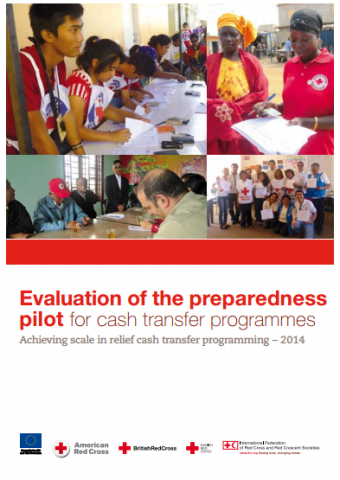IFRC Evaluation of the preparedness pilot for cash transfer programmes: Achieving scale in relief cash transfer programming


In order to develop a preparedness approach to cash transfer programming, four National Societies (from the Philippines, Viet Nam, Senegal, and Chile) were selected for the implementation of the preparedness pilot project.
The IFRC secretariat worked with the four pilot countries between May 2012 and December 2013 to support the National Societies with training and coaching, ensuring cash transfers and market assessment are embedded into their existing preparedness measures and contingency planning. This was done with the aim that future operations with a scalable cash transfer component can be rapidly implemented.
This evaluation reviews the work done by the four National Societies and the IFRC secretariat to develop a preparedness approach. The objective of the evaluation is to, “Review the progress made by all four pilot countries and assess the extent to which they are now able to respond using cash, and to do so at increased scale compared to previous operations.”
© IFRC 2014
